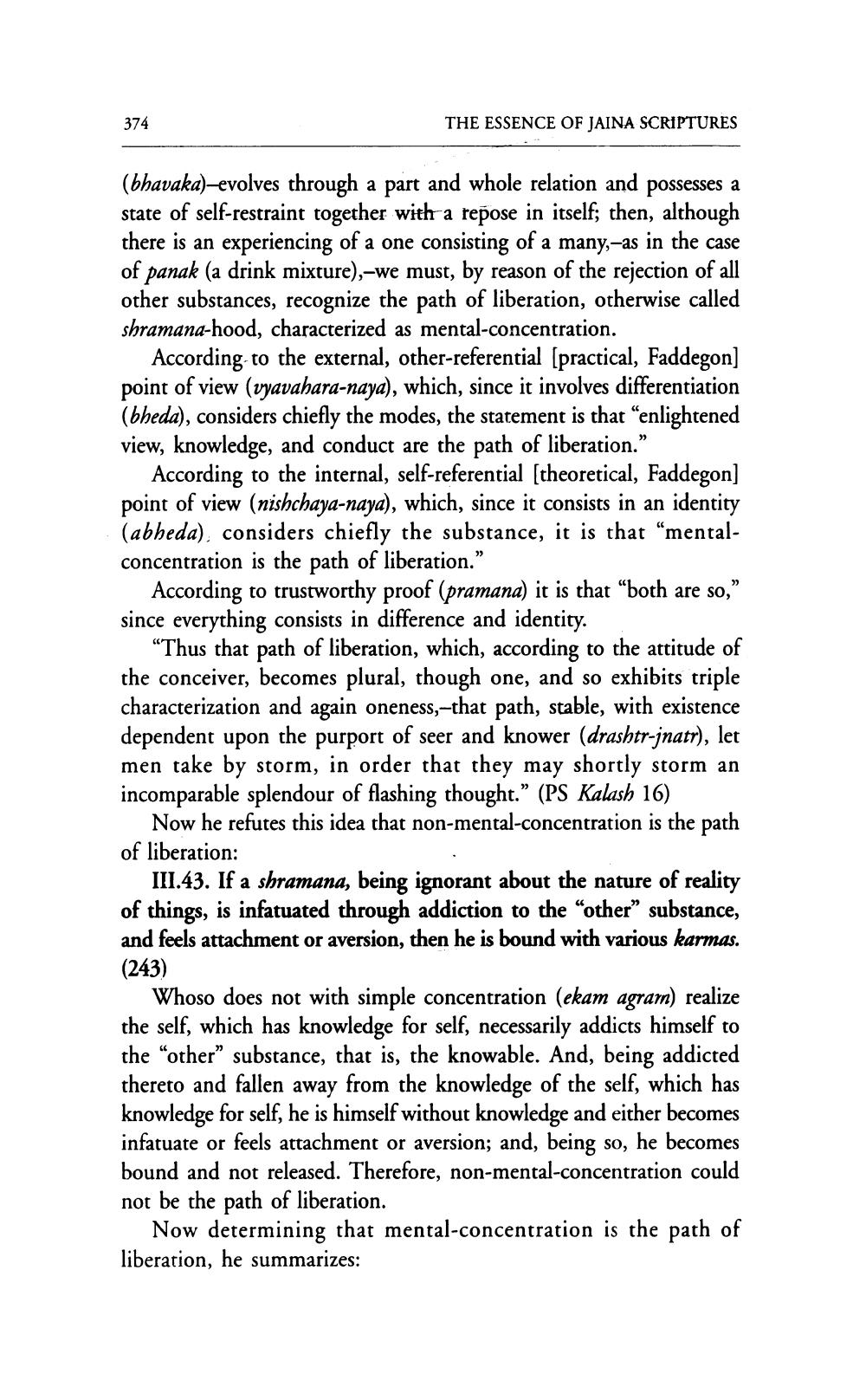________________
374
THE ESSENCE OF JAINA SCRIPTURES
(bhavaka)-evolves through a part and whole relation and possesses a state of self-restraint together with a repose in itself; then, although there is an experiencing of a one consisting of a many,-as in the case of panak (a drink mixture),–we must, by reason of the rejection of all other substances, recognize the path of liberation, otherwise called shramana-hood, characterized as mental-concentration.
According to the external, other-referential (practical, Faddegon) point of view (vyavahara-naya), which, since it involves differentiation (bheda), considers chiefly the modes, the statement is that “enlightened view, knowledge, and conduct are the path of liberation.”
According to the internal, self-referential (theoretical, Faddegon] point of view (nishchaya-naya), which, since it consists in an identity (abheda), considers chiefly the substance, it is that “mentalconcentration is the path of liberation."
According to trustworthy proof (pramana) it is that “both are so," since everything consists in difference and identity.
“Thus that path of liberation, which, according to the attitude of the conceiver, becomes plural, though one, and so exhibits triple characterization and again oneness,-that path, stable, with existence dependent upon the purport of seer and knower (drashtr-jnatr), let men take by storm, in order that they may shortly storm an incomparable splendour of flashing thought.” (PS Kalash 16)
Now he refutes this idea that non-mental-concentration is the path of liberation:
III.43. If a shramana, being ignorant about the nature of reality of things, is infatuated through addiction to the “other” substance, and feels attachment or aversion, then he is bound with various karmas. (243)
Whoso does not with simple concentration (ekam agram) realize the self, which has knowledge for self, necessarily addicts himself to the “other” substance, that is, the knowable. And, being addicted thereto and fallen away from the knowledge of the self, which has knowledge for self, he is himself without knowledge and either becomes infatuate or feels attachment or aversion; and, being so, he becomes bound and not released. Therefore, non-mental-concentration could not be the path of liberation.
Now determining that mental-concentration is the path of liberation, he summarizes:




